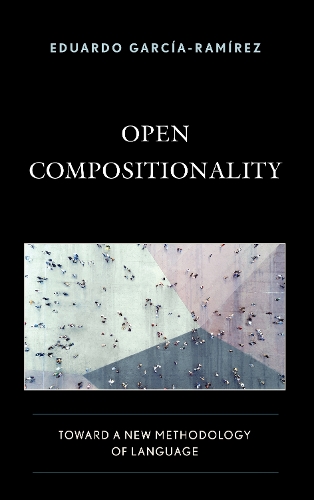
Open Compositionality: Toward a New Methodology of Language
(Hardback)
Publishing Details
Open Compositionality: Toward a New Methodology of Language
By (Author) Eduardo Garca-Ramrez
Bloomsbury Publishing PLC
Lexington Books
27th June 2019
United States
Classifications
Professional and Scholarly
Non Fiction
Psycholinguistics and cognitive linguistics
401.43
Physical Properties
Hardback
242
Width 161mm, Height 227mm, Spine 25mm
535g
Description
Open Compositionality: Towards a New Methodology of Language argues that natural languages, like English and Spanish, are not only systems of representation useful for communication but also, and most importantly, highly interactive cognitive capacities allowing humans to engage in complex forms of cognition. This view goes against the orthodoxy in philosophy of language, which considers natural languages to be specialized systems consisting of only linguistic elements and functioning in a closed compositional manner, allowing for a fully formal, algebraic descriptions. Eduardo Garca Ramrez rejects the longstanding principle of compositionality, according to which the meaning of any complex expression is fully determined by its parts and the way they are combined, and substitutes it with an alternative, open and interactive one. This novel view of the nature of language better accounts for the empirical evidence. Garca Ramrez develops an account of open compositionality, accompanied by the cognition first methodology, in which natural languages are conceived as supermodular cognitive capacities that allow for interaction among multiple distinct areas of human cognition. The explanatory success of this novel proposal and its accompanying methodology are tested by the authors account of three enduring philosophical problems: substitution failure, empty names, and the nature of moral discourse.
Reviews
This book offers a completely new look at the traditional Principle of Compositionality and its power to account for the meaning of linguistic expressions. Garca Ramrez lucidly argues against what he calls 'Closed Compositionality,' i.e., the idea that the meaning of complex expressions in a given language is fully determined on the basis of its lexicon and syntactic/semantic axioms. From the authors perspective, the interpretation of those expressions strongly depends on the different kinds of cognitive processes underlying their use. After a careful evaluation of recent discoveries in psycholinguistics and neurosciences, Garca Ramrez proposes an original alternative thesis, Open Compositionality, according to which complex linguistic expressions can only be adequately interpreted on grounds of a multifaceted decision-making procedure. Open Compositionality convincingly deploys the significant advantages for the study of natural language carried by this extraordinary methodological turn. It should be read by anyone interested in getting a clearer idea of how we are able to communicate with one another through language use. -- Eleonora Orlando, University of Buenos Aires
Author Bio
Eduardo Garca Ramrez is research fellow at the Institute for Philosophical Research of the National Autonomous University of Mexico.
